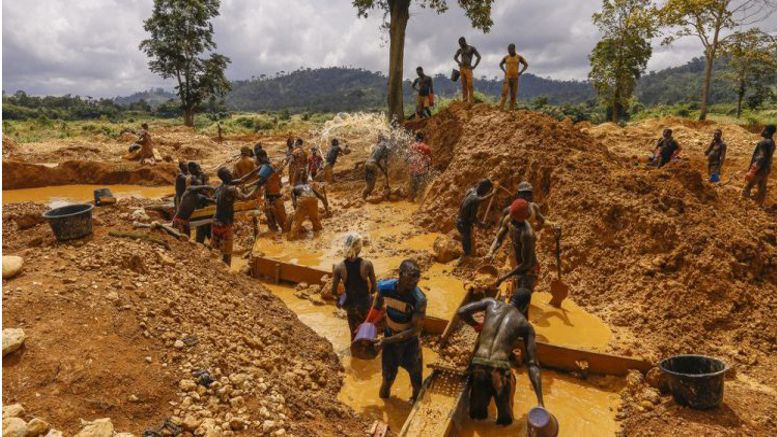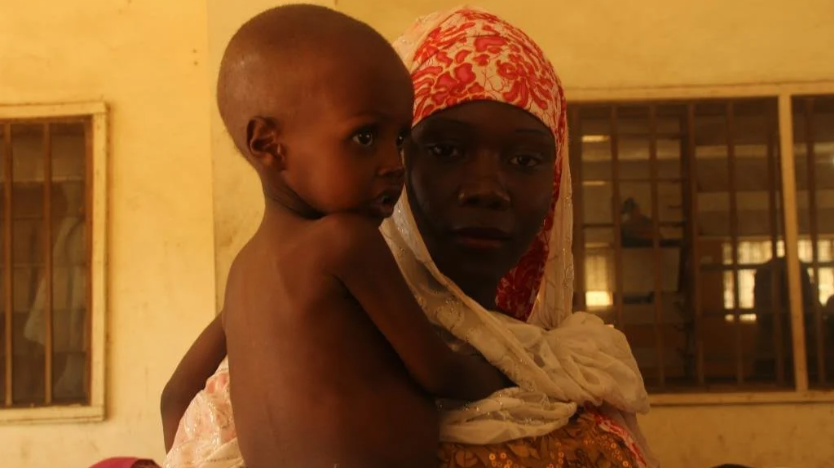Illegal mining in Nigeria, often called artisanal and small-scale mining (ASM), has been a longstanding issue, especially in North West Nigeria. Its roots date back to pre-colonial times when traditional mining practices were prevalent. However, with the discovery of oil in the 1950s, the government’s focus shifted from solid minerals to petroleum, leading to the neglect of the mining sector. This neglect resulted in the proliferation of unregulated mining activities, which became more pronounced with the economic downturn of the 1980s and 1990s. The Structural Adjustment Program (SAP) and the associated reduction in formal employment pushed many Nigerians into informal sectors, including illegal mining, as a means of survival.
Illegal mining is widespread across Nigeria’s six geopolitical zones, reflecting unique challenges and dynamics. The North West is rich in gold, particularly in the Zamfara and Kebbi states, and around 80% of mining in the North West is carried out illegally and on an artisanal basis. Illegal gold mining activities have been rampant, leading to severe environmental degradation and the outbreak of lead poisoning, which claimed the lives of over 400 children in 2010 in Zamfara. The region has seen a surge in violence, with illegal mining being linked to banditry and armed groups. In the North East, particularly in states like Borno and Yobe, illegal mining is less prevalent compared to the North West. However, illegal mining activities have been recorded in Bauchi and Taraba, where tin, columbite, and other minerals are abundant. The presence of insurgent groups like Boko Haram has exacerbated the challenges, as they exploit these resources to fund their operations.
In the North Central region, states like Niger, Kogi, and Plateau are rich in a variety of minerals, including tin, limestone, and coal. Illegal mining activities have led to environmental destruction and conflicts between local communities and miners. In Plateau State, the illegal mining of tin has been ongoing for decades, leading to severe land degradation and social unrest. South West states like Osun, Ogun, and Ondo have recorded illegal mining activities. On August 8, 2024, the apprehension of illegal miners in Ondo state revealed the kingpins were from Zamfara and Niger state. This brings to light a picture of the potential spread of illegal mining from areas identified as core illegal mining zones to other peripheral zones. The South-West region has also recorded illegal quarrying activities, particularly in Ogun State. The South East, particularly Ebonyi State, is known for its rich lead and zinc deposits. Illegal mining in this region has led to environmental degradation and health issues among local communities. The South East also grapples with illegal coal mining, particularly in Enugu State. Although the South-South is primarily known for its oil and gas resources, illegal mining activities have also been reported, particularly in Cross River State, where limestone and granite are illegally mined.
The impacts of illegal mining in Nigeria are multidimensional, affecting the environment, economy, and society. Illegal mining activities, particularly in states like Zamfara, Osun, Anambra and Plateau, have led to severe environmental degradation. Hazardous chemicals like mercury in gold processing have contaminated water bodies, while deforestation and the destruction of farmlands have disrupted local ecosystems. In regions like Zamfara and Niger, illegal mining has led to health crises, including lead poisoning and respiratory problems due to exposure to harmful chemicals. The lack of safety measures and protective equipment further exacerbates these health risks. The Nigerian government loses billions of naira annually due to illegal mining. The Chairman of the House Committee on Solid Mineral, Hon Jonathan Gaza, disclosed in July 2024 that unlawful mining costs the country $9 billion each year, with the only money coming from a 3 per cent royalty paid by the few licensed miners. The unregulated nature of these activities means that revenues from mining are not captured in the formal economy, leading to significant revenue losses.
The link between illegal mining and local conflicts cannot be overstated. In regions like Zamfara, illegal mining has fuelled armed banditry and violence as armed groups seek to control lucrative mining sites. According to an article from the Institute for Security Studies (ISS), illegal mining is a significant driver of local conflicts in Nigeria, particularly in the Northwest. Armed groups and criminal networks exploit the mining sector’s unregulated nature, using it to finance their activities. In Zamfara State, for example, illegal mining has fuelled banditry and violence, with criminal groups engaging in deadly clashes over control of mining sites. These conflicts have displaced thousands of people and contributed to the rising insecurity in the region. According to an ENACT article, illegal mining also funds banditry and cattle rustling in mining communities to incite violence among cattle breeders and rearers. Locals from Zamfara State revealed anonymously that such conflicts displace people and create opportunities for illegal miners to operate.
The Nigerian government has made several attempts to curb illegal mining at the federal and state levels. The Ministry of Mines and Steel Development has been at the forefront of efforts to regulate the mining sector. The government has implemented various policies, such as the Roadmap for the Growth and Development of the Nigerian Mining Industry, to revitalise the sector and curb illegal activities. The government has also deployed security forces to mining hotspots to crack down on illegal mining activities. State governments in Nigeria have also taken steps to address illegal mining. In Zamfara, for instance, the state government banned all mining activities in 2019 to curb the rising violence associated with illegal mining. Other states, like Osun and Ebonyi, have also implemented various measures, including community engagement and the formalisation of artisanal miners. The operations of the Nigerian Army have led to the apprehension of illegal miners. In Ondo state, operatives of the 32 Artillery Brigade of the Nigerian Army in Akure arrested 12 persons engaged in illegal mining. Despite the measures in place, illegal mining activities still thrive. The government’s ban on artisanal gold mining in Zamfara State and across the region and the deployment of soldiers to enforce the ban since April 2019 have been inadequate to stamp out illegal mining activities.
To effectively address the issue of illegal mining, the Nigerian government should strengthen regulations governing the mining sector, ensuring that all mining activities are adequately documented and monitored. This includes enforcing environmental and safety standards to protect local communities and the environment. The government should also work towards formalising artisanal mining, providing licenses and support to small-scale miners. This would help integrate them into the formal economy, ensuring they contribute to national revenue. The government should also enhance security in mining regions, deploying well-trained security forces to protect mining sites and prevent the exploitation of resources by criminal groups. In conclusion, illegal mining is a complex issue in Nigeria. While the government has progressed in addressing the problem, more must be done to harness Nigeria’s rich mineral resources sustainably.
Recommended reading:



